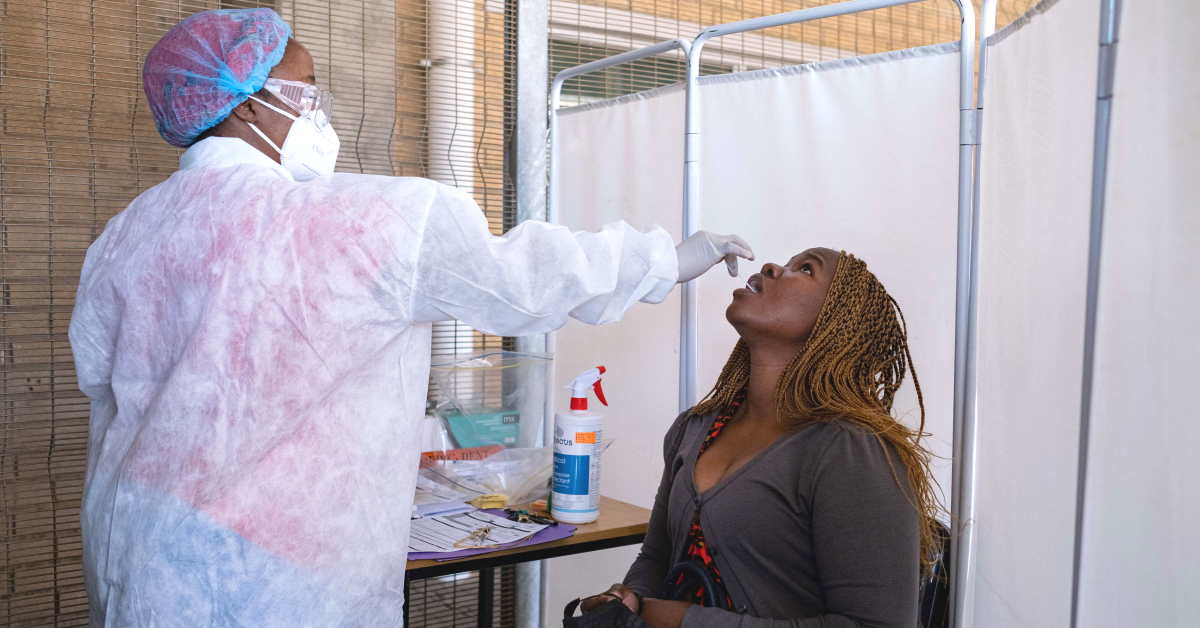The emergence of the Omicron variant of the coronavirus is the "ultimate evidence" of the danger of unequal vaccination rates around the world, the head of the Red Cross said on Friday.
In an interview with AFP during a visit to Moscow, Francesco Rocca, the president of the International Federation of Red Cross (IFRC) and Red Crescent Societies, also raised concerns about the politicisation of migrants and for the plight of civilians in Afghanistan as winter approaches.
Asked about the global approach to vaccinations, the head of one of the world's largest humanitarian groups said more needed to be done to fight rampant vaccine inequality.
"The scientific community has warned... on several occasions about the risks of very new variants in places where there is a very low rate of vaccinations," he said.
About 65 percent of people in high-income countries have had at least one dose of vaccine against the coronavirus, but just over seven percent in low-income countries, United Nations (UN) numbers show.
Western countries have been accused of hoarding vaccines and the World Health Organization (WHO) has urged them to avoid a rush to give out booster shots when millions worldwide have yet to receive a single dose.
"This is a selfish approach coming from the Western community, this is really a blind approach," said Rocca, an Italian lawyer and long-time Red Cross volunteer who was elected to head the IFRC in 2017.
"It's unbelievable that we are still not realising how much we are interconnected. This is why I call the Omicron variant the ultimate evidence."
Migrants As 'Weapons'
Omicron, a heavily mutated version of the coronavirus, was first reported in South Africa on 24 November and is now present in more than three dozen countries.
It has sparked a wave of travel bans, cast the global economic recovery into doubt and led to warnings that it could cause more than half of Europe's COVID cases in the next few months.
"The only way is to vaccinate, so access for everyone, everywhere," Rocca said, saying it was a "moral imperative" to look at suspending intellectual property rights for COVID-19 vaccines in order to boost production.
After a trip last month to Belarus where thousands of migrants trying to enter the European Union (EU) have been blocked on the Polish border, Rocca said he was concerned about people fleeing their countries being used for political purposes.
Critics have accused Belarus's strongman leader Alexander Lukashenko of luring the migrants to his country to send across the border in revenge for sanctions.
"Of course, this is not new, now maybe it is only more evident that they are used as a political tool, weapons," Rocca said.
Poland has refused to allow the migrants, mainly from the Middle East, to cross. Some have returned to their home countries but many remain along the border in difficult conditions.
'Humanitarian Tragedy' For Afghans
Western governments, Rocca said, should do more "not in terms of receiving or not receiving" migrants but to address the reasons they want to leave their countries.
"You cannot stop the desperation... they will find a solution to save their own lives," he said.
"Those who have more power have the responsibility to fix the crises... not only to allocate some resources from time to time without a political strategy."
And with winter approaching in Afghanistan, he said aid groups like the Red Cross are deeply worried about a "potential humanitarian tragedy".
"We are talking about children, we are talking about the elderly. So, it's not politics, this is about the lives of millions," he said.
The UN has warned that around 22 million Afghans will face food shortages in the winter months as the country faces an economic crisis aggravated by the Taliban takeover in August.
Washington has frozen about US$10 billion of assets held in its reserve for Kabul and international financial organisations have halted Afghanistan's access to funding.
Rocca said it was not the place of the Red Cross to discuss the merits of sanctions against the Taliban but insisted they should not "punish civilians".
"We have to deal with human beings, and the lack of political dialogue is making their lives even more unbearable," he said.
The IFRC, based in Geneva, supports local Red Cross and Red Crescent activities in 192 countries.
